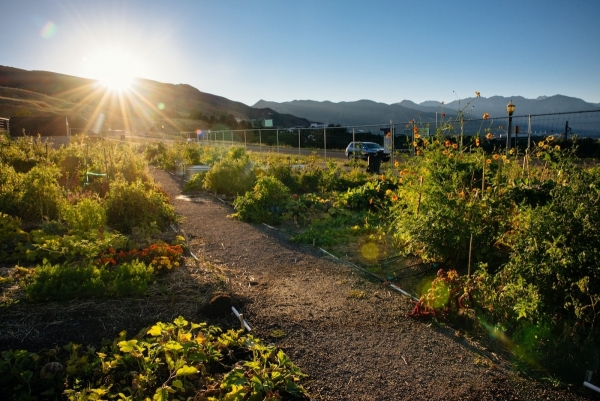Mr. James Loomis is employed at Wasatch Community Gardens, an urban farm that serves to educate women who are facing homelessness with employment skills on how to grow, harvest, preserve, and prepare healthy food. As the GREEN Team Farm Director, Mr. Loomis is tasked with the day-to-day operation of the farm as well as handling farm strategy and design involving on sustainable practices. As part of its green strategy, Wasatch Community Gardens avoids using conventional chemicals and instead uses advanced composting techniques to turn their agricultural waste into fertilizers and products capable of combating pests and disease.
As part of the Young Leaders of the Americas Initiative, Wasatch Community Gardens hosted Winston Laville of Antigua and Barbuda in the autumn of 2016. Under Mr. Loomis’s guidance, Mr. Laville learned of the farm’s sustainable farming practices, believing that these practices would be useful in improving agricultural sustainability in his home country.
In 2017, Mr. Loomis had the opportunity to travel to Antigua and Barbuda as part of the Reverse Exchange Program where he and Mr. Laville continued to work on improving the county’s agricultural sustainability. Currently, Antigua and Barbuda’s organic waste ends up decaying in landfills, releasing methane. Not only is methane a potent greenhouse gas, it is flammable, causing the landfills to ignite and cause air pollution problems. The country’s use of chemicals to handle foliage overgrowth is also problematic. The use of such chemicals—which are expensive to import—has contributed to the sterilization of the islands’ soil, making it difficult to grow crops, and threatening the islands’ economic vitality. According to Mr. Loomis, these unsustainable practices have led to their pineapple production falling to historic lows.
To help improve sustainability, Mr. Loomis taught a workshop to local farmers as well as government officials on implementing more sustainable farming practices while increasing profits. He also did TV and radio spots with Mr. Laville and spent time touring the islands’ various farms with officials from the Ministry of Agriculture. Mr. Loomis was impressed with Mr. Laville’s professional drive and organization and says the pair continues to keep in touch on a monthly basis to compare notes and follow up on projects.

While he enjoyed his time in Antigua and Barbuda, Mr. Loomis wishes he could have spent more time on the islands to do more hands-on work with the local people. In his opinion, for the exchange program to have a more significant impact, there should be follow-up trips two or three years after the first visit to ensure that learned practices continue in earnest.

